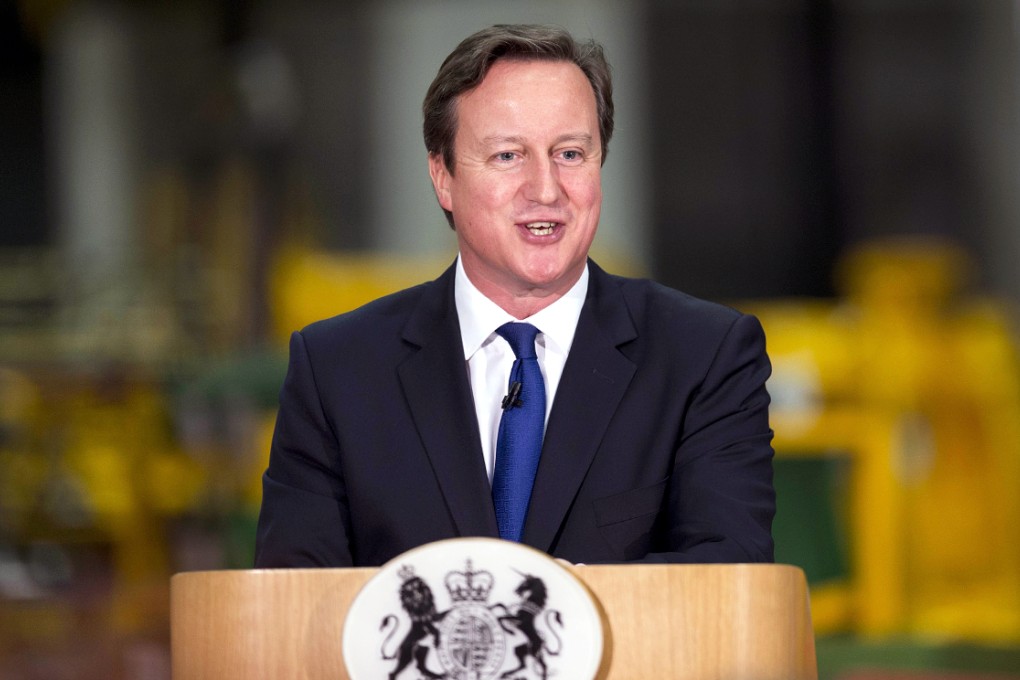David Cameron steps into row over Beijing's refusal to allow lawmakers into Hong Kong
British Prime Minister David Cameron yesterday stepped into a row over Beijing's refusal to let a group of British lawmakers visit Hong Kong.

British Prime Minister David Cameron yesterday stepped into a row over Beijing's refusal to let a group of British lawmakers visit Hong Kong, as questions were raised over whether the central government had the authority to decide who could enter the city.
Meanwhile, Beijing's Foreign Ministry hit back at criticism from the lawmaker at the centre of the row, saying he, not China, was being "confrontational".
The case centres on the House of Commons Foreign Affairs Committee, which is conducting an inquiry into the implementation of the 1984 Sino-British Joint Declaration, which paved the way for the 1997 handover. Its chairman, Richard Ottaway, was informed on Friday by Beijing's deputy ambassador in London that his committee would not be granted visas for the city.

Cameron's spokesman told Britain's yesterday that the decision was "mistaken" and "counterproductive" as it "only amplifies concerns, rather than diminishing them". Britain would be seeking a dialogue over the issue, he added.
But Foreign Ministry spokeswoman Hua Chunying said yesterday that the Beijing and Hong Kong governments would handle the matter "according to the law". She rejected Ottaway's accusation that Beijing was being "confrontational" and said the reverse was true.
"Whether to grant visas, and who to give them to, are the decisions of the country," Hua said, adding that Beijing had been firmly against the committee's inquiry. "If a particular member of parliament does not listen, this is what a confrontation is, and that is not in the interest of developing Sino-British relations."
